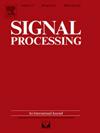Event-triggered stochastic model predictive control based on distributionally robust optimization approach for network control systems under DoS attacks
IF 3.4
2区 工程技术
Q2 ENGINEERING, ELECTRICAL & ELECTRONIC
引用次数: 0
Abstract
In this paper, we propose a novel event-triggered stochastic model predictive control (SMPC) algorithm based on distributionally robust optimization (DRO) for network control systems (NCSs) that are affected by additive disturbances and Denial-of-Service (DoS) attacks. The event-triggered mechanism is designed to reduce sampling times, communication costs, and computational demands while maintaining performance. By converting chance constraints into second-order cone (SOC) constraints, the algorithm effectively addresses disturbances with limited prior knowledge, utilizing accessible first and second moments. The proposed event-triggered DR-SMPC (ETM-DR-SMPC) has longer sampling intervals than periodic sampling DR-SMPC (PDR-SMPC). Compared to self-triggered SMPC (SSMPC), ETM-DR-SMPC has longer sampling intervals, less computation, better performance and fewer constraint violations. It also has better performance and longer sampling intervals than event-triggered robust model predictive control (ETM-RMPC). Furthermore, we demonstrate the exponential mean square stability of ETM-DR-SMPC for the first time and the recursive feasibility of ETM-DR-SMPC is guaranteed. Numerical simulations validate the effectiveness of the proposed algorithm.
基于分布式鲁棒优化方法的事件触发随机模型预测控制在DoS攻击下的网络控制系统
本文提出了一种基于分布式鲁棒优化(DRO)的事件触发随机模型预测控制(SMPC)算法,用于受加性干扰和拒绝服务(DoS)攻击影响的网络控制系统(ncs)。事件触发机制旨在减少采样时间、通信成本和计算需求,同时保持性能。通过将机会约束转换为二阶锥约束,该算法利用可访问的一阶矩和二阶矩有效地处理有限先验知识的干扰。事件触发DR-SMPC (ETM-DR-SMPC)比周期采样DR-SMPC (PDR-SMPC)具有更长的采样间隔。与自触发SMPC (SSMPC)相比,ETM-DR-SMPC具有更长的采样间隔、更少的计算量、更好的性能和更少的约束违反。它比事件触发鲁棒模型预测控制(ETM-RMPC)具有更好的性能和更长的采样间隔。此外,我们首次证明了ETM-DR-SMPC的指数均方稳定性,并保证了ETM-DR-SMPC的递推可行性。数值仿真验证了该算法的有效性。
本文章由计算机程序翻译,如有差异,请以英文原文为准。
求助全文
约1分钟内获得全文
求助全文
来源期刊

Signal Processing
工程技术-工程:电子与电气
CiteScore
9.20
自引率
9.10%
发文量
309
审稿时长
41 days
期刊介绍:
Signal Processing incorporates all aspects of the theory and practice of signal processing. It features original research work, tutorial and review articles, and accounts of practical developments. It is intended for a rapid dissemination of knowledge and experience to engineers and scientists working in the research, development or practical application of signal processing.
Subject areas covered by the journal include: Signal Theory; Stochastic Processes; Detection and Estimation; Spectral Analysis; Filtering; Signal Processing Systems; Software Developments; Image Processing; Pattern Recognition; Optical Signal Processing; Digital Signal Processing; Multi-dimensional Signal Processing; Communication Signal Processing; Biomedical Signal Processing; Geophysical and Astrophysical Signal Processing; Earth Resources Signal Processing; Acoustic and Vibration Signal Processing; Data Processing; Remote Sensing; Signal Processing Technology; Radar Signal Processing; Sonar Signal Processing; Industrial Applications; New Applications.
 求助内容:
求助内容: 应助结果提醒方式:
应助结果提醒方式:


